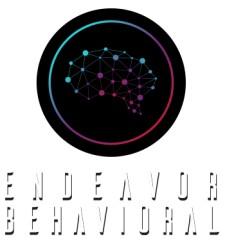Dealing With Social Skills Deficits
Social skills deficits — an umbrella term for a wide range of difficulties people experience when interacting, communicating, and forging bonds with others. As we are social animals, these difficulties can severely impact most aspects of our lives, at home, at work, and in school.
In this overview, we’re taking a look at social skills deficits, trying to understand what they are and what kind of challenges they pose for those affected by them. In addition, we’re offering a few words of advice on how to spot and manage them.
What Causes Social Skills Deficits and How Do We Spot Them?
There are many potential causes for social skills deficits. Most of the time, they are a result of various neuro developmental conditions, such as autism or ADHD. Sometimes, however, the causes are more abstract: social anxiety, low self-esteem, or lack of experience when it comes to social situations.
As with most behavioral problems, social skills deficits manifest as a spectrum of sometimes hard-to-distinguish problems. These problems also vary on an individual basis, so diagnoses are not universal. There are, however, some symptoms that are pretty much universal, such as:
- Difficulty initiating or maintaining a conversation;
- Trouble understanding unspoken social cues;
- Keeping up with the social norms;
- Behaving inappropriately to the current social situation.
Note: Social skills deficit can also entail a lack of empathy and disregard for other people’s opinions, feelings, and needs.
What Kind of Problems Do Social Skills Deficits Lead To?
A wide spectrum of problems, naturally, leads to a wide range of challenges those suffering from social skills deficits have to face on a daily basis. For one, being unable to engage in fruitful conversations results in a lack of meaningful relationships, which itself leads to depression and withdrawal from society.
Further, even when they are able to engage in conversation, the inability to notice and interpret social cues and things such as body language or tone can lead those with social skills deficits to misunderstand their interlocutor and, thus, respond appropriately. The same applies in situations that demand we follow the rules and norms — those who can’t pick up on them might behave inappropriately.
Finally, a lack of empathy may be an obstacle not only to meaningful connections but cooperation as well. That is especially true in work environments and in situations that demand we resolve a conflict or maintain high levels of mutual trust and collaboration.
How Can We Respond to Social Skills Deficits?
Since each person is different, and since the symptoms can vary, treating social skills deficits requires careful planning and a well-structured approach that can accommodate the needs of each individual. Some common strategies used regardless of the problem include:
- Role-playing: By creating artificial environments that mimic actual social interactions, we can prepare those with impaired social skills for potentially problematic situations and give them appropriate tools to handle any unexpected situations. Role-playing is also fun, which reinforces progress;
- Social skills training programs: There are a lot of programs that provide explicit training for individuals struggling with social interactions, both individually and in groups. The sessions usually include a lot of listening and repeating, conversing, maintaining eye-contact, and developing emotional skills;
- Peer activities: Learning how to socialize is, naturally, best done in groups. Of course, group sessions must be made to match the needs of every learner and conducted in safe environments that facilitate social interaction. Here, we can involve speech and occupational therapists, behavior analysts, and other professionals whose insight can help guide the program.
ABA Programs for Older Learners
When treating those who suffer from additional problems such as ADHD and autism, there is also Applied Behavior Analysis (ABA) therapy as a valid treatment option.
ABA therapy focuses on modifying behavioral patterns through a series of interventions with the goal of slowly reducing the number of socially challenging behaviors. The whole process relies chiefly on continuous feedback and motivation, which are universally acknowledged as necessary for any meaningful progress.
Through constant feedback, we can collect enough data to identify what underlying problems might be responsible for the lack of social skills. With a clear picture in mind, it becomes easier to come up with and eventually adjust our intervention strategies.
ABA strategies usually involve breaking down and carefully explaining social situations and the skills needed to navigate them.
Where to Find Treatment
If you’re in Arlington Heights, IL, you can get all the necessary information regarding ABA therapy at Nexus, especially if you’re looking for treatment for older leaders struggling to meet the required academic levels and socialize with their peers.
At Nexus, learners are taught how to engage with others by focusing on essential social skills. The instructors cover a wide range of topics with their students, including language skills, vocational skills, skills necessary for successful navigation of the work environment, etc.
Naturally, parents and other family members are actively involved in the process. They’re encouraged to monitor and support their loved ones as they practice at home and outside the main sessions. This kind of involvement ensures the learners can make social gains at their own pace in a relaxed environment that encourages spontaneous interaction.
Regardless of where you are on your journey, you are always welcome at Nexus. If you have any questions regarding ABA therapy or social skills deficits, don’t hesitate to reach out to the Nexus help support group!
Closing Thoughts
Remember: helping someone develop social skills is a long process. It requires patience, hard work, and constant encouragement. Also, you must be actively involved and do your best to provide the learner with learning strategies that will accommodate their needs. Each individual is unique, but a positive mindset and a welcoming, inclusive environment will help them become more confident with the program, no matter who they are.





